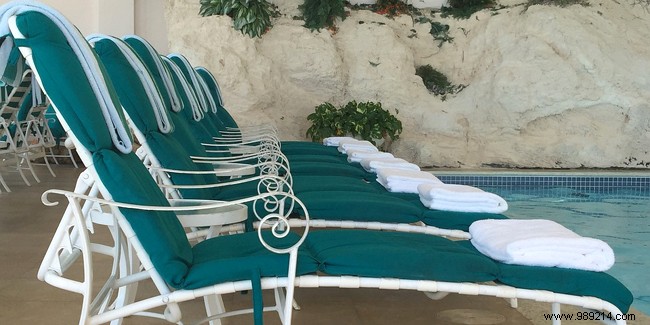
Spa treatments are still too often considered as comfort stays. However, the treatments based on thermal water rich in minerals provided are recognized for their beneficial effects on many diseases, and particularly on those related to rheumatism, osteoarthritis, in short, all those which affect the joints, and that the elderly people unfortunately know well.
Spa treatments are part of a branch of medicine called thermalism, i.e. the science of thermal waters. They use the virtues of water, and in particular hot water which has the particularity of concentrating minerals at a high level which have a positive effect on many diseases, particularly age-related. These waters can be rich in bicarbonate, sulphate, sulphide or chloride, trace elements that help relieve pain or cure certain diseases.
A thermal cure can take the form of an internal treatment (internal hydrotherapy) in particular by a cure of thermal water drinks or by the practice of gargling. It can also offer an external treatment (external hydrotherapy) which takes the form of baths, showers, massages or, for example, applications of mud based on thermal water. Studies have shown that the benefits of spa treatments are seen over the long term in terms of relieving and even curing many symptoms.
A spa treatment, which in principle lasts 18 days, is generally accompanied by acts of physiotherapy or complementary medical practices. It must take place in approved centers to allow spa guests to be covered by social security and certain complementary health insurance.
It is the doctor who prescribes to the patient the spa treatment best suited to his needs. The request for coverage is then sent to the health insurance which gives its agreement or not. Once there, the health center doctor takes care of the patient and defines a suitable treatment program for him.
For the curist, these thermal water treatments do not only represent treatments for the body. A spa treatment is also very beneficial from a psychological point of view by offering the elderly in particular a break from their daily life but also times of relaxation and well-being which play a huge role in relieving their health problems. . Spa centers are also places of social ties that can sometimes materialize in friendly relationships that last over time between spa guests.
Spa treatments have the advantage of relieving and treating many ailments or diseases that particularly affect the elderly. The thermal water is in fact beneficial for diseases such as those related to rheumatism, joint diseases, respiratory ailments, skin diseases, cardio-arterial diseases, etc.
Rheumatic (as well as respiratory) conditions are those for which spa treatment gives the most positive results. It has very positive effects on, for example, osteoarthritis and all joint disorders from which very often suffer, especially the elderly. Hot thermal water has the power to relieve the joints and treat the stiffness that most often goes with these ailments by improving the flexibility of the tissues that surround the joints. It also has analgesic and anti-inflammatory properties.
Thermal water baths and showers are also accompanied for these rheumatological disorders by physiotherapy massages adapted to each patient and facilitate the rehabilitation of painful joints. A set of significant benefits of spa treatment when you know that there are no drugs to treat rheumatism or osteoarthritis.